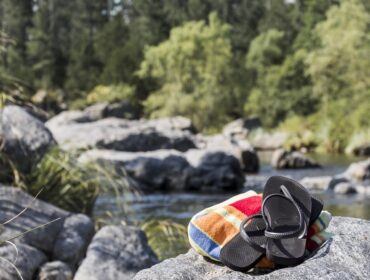All too often we hear of harm being done to the environment coming in the form of industries and practices that value profit over protection. Now, a number of eco-minded entrepreneurs are figuring out how to make money and still take care of the natural world. Here are a few of the ways these people are turning greenbacks into a greener planet.
Omidyar Network
Pierre Omidyar, the founder of eBay, is behind programs that bring electricity into rural areas of East Africa by financing the purchase of small solar powered generators. Families who receive a generator pay about as much to power lights and small appliances as they would have spent on kerosene for lamps, meaning no additional cost to their already restricted budgets. This low cost venture adds up to a better quality of life for the people it reaches, and the use of solar is a non-polluting source. Another program within the Omidyar Network finances mobile banking options in third-world countries where people don’t have access to traditional brick and mortar banks or lenders.
The Nature Conservancy
Attempting to counter the loss of California habitats, The Nature Conservancy began a program of creating temporary wetlands. By capitalizing on the connecting capabilities of today’s technology, they worked with a citizen database called eBird to gather information on bird sightings and to determine where migrating flocks might be in need of habitat. They then work with nearby rice farmers and purchase temporary rights to flood their fields to provide home for the birds. The farmers bid for the opportunity to participate, earning some quick cash, while The Nature Conservancy saves loads of capital by not having to purchase the land outright. It’s a win-win-win for the birds, the farmers, and the environment.
OpenIDEO
A crowdsourcing platform with an ecological bent, OpenIDEO uses social media to set up virtual think tanks to solve problems. A recent project, the Renewable Energy Challenge (sponsored by the 11th Hour Project), explored ways to make the transition from traditional power sources to renewable energy. Of over 300 ideas and suggestions, a final 20 were chosen for further exploration and several are already being financed. One such program is called Re-Volve, a revolving loan fund that raises money to lend for solar panels. Once the first recipient pays the loan back, the money is reinvested into more solar panels in the same community.
Featured Image from Noah Buscher/Unsplash







